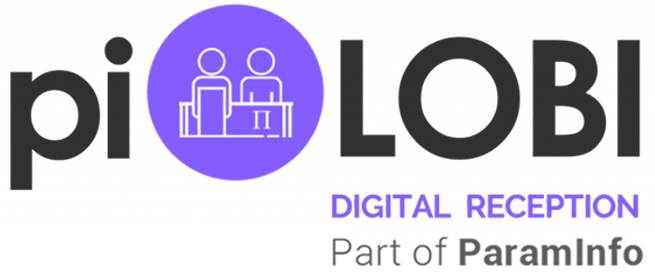
What to Look for in Hotel Management Software in 2025?
Running a hotel today means doing more than giving out room keys and handling reservations. Managing daily tasks, like online bookings, room setups, guest needs, and payments, can get complicated and demand quick action. This is why having the right hotel management software makes a big difference.
Secondly, picking good hotel software isn’t about following trendy terms. It’s about building the right set of tools to make your property work.
Whether it’s simplifying the workflow or impressing your guests, this guide highlights the types of visitor management software every hotel should think about and the key features they need. But before getting into detail, let’s understand what a hotel management system is and why it matters the most.
What is a Hotel Management System?
A Hotel Management System acts as a digital tool to run hotel operations more efficiently. It swaps out manual work with smart solutions to handle tasks like bookings, guest check-ins, housekeeping, and payments. Its purpose is to boost efficiency, cut mistakes, and make guests happier.
The hotel guest check-in system serves as a central dashboard for hotel employees. It helps track room availability, manage guest details, and handle online reservations. Everything stays connected and updated, making service quicker, avoiding double bookings, and keeping guests more satisfied.
These systems today often come with features such as:
- Hotel management software to manage reservations in real time
- Front desk tasks include check-ins and check-outs.
- Coordinate housekeeping and track room statuses.
- Use tools to handle billing and invoices.
- Create reports and analyze data to track performance.
Picking the right hotel management software allows hotels to stay on top of tasks, run smoother daily activities, and exceed what guests expect.
Why a Hotel Management System Matters the Most?
Running a hotel in 2025 demands more than exceptional hospitality skills. Modern travelers seek quick digital reservations, immediate booking confirmations, effortless registration processes, and customized stays. To remain competitive and meet these modern demands, hotels need to implement an effective Hotel visitor registration system that streamlines workflows and boosts productivity.
Essential components like reservation platforms, scheduled notifications, live status tracking, and unified control panels enable staff to maximize their efficiency and minimize manual effort.
The key advantages of hotel management platforms extend beyond operational ease. They enable data-driven strategies through analytics, minimize booking conflicts, optimize room utilization, and maintain high guest satisfaction levels.
Key Features of Hotel Management Software
Property Management System
A property’s guest management system works as the command center to handle a hotel’s daily activities. It organizes everything, including reservations, guest check-ins, housekeeping, and detailed guest profiles, all in one place.
Further, it keeps room statuses updated through real-time room management and tracks guest history and preferences to provide a personal touch. The guest management system connects with accounting tools to handle billing and finances without errors. On top of that, its reporting and analytics features let you use data to boost efficiency and improve how guests experience your hotel.
1. Booking Engine
The Booking Engine turns your hotel’s website into a direct revenue channel by turning traffic into bookings without paying commissions. It includes a simple design that lets guests see room availability and book right on your site in real time.
Guests can feel secure using the built-in payment system, while a mobile-first approach keeps the process smooth on any device. It offers multiple language options to reach travelers from around the world and sends instant booking confirmations to build trust and make things easier. This tool gives you full control over your reservations and makes the guest journey better from start to finish.
2. User-Friendly and Colorful Dashboard
A clear and easy-to-use dashboard plays a key role in any hotel management system. Hotel staff can see daily operations because of its color-coded design. Different colors show room statuses like available, booked, under maintenance, or checked out. This makes juggling multiple tasks much simpler in one view.
The dashboard feature in this software helps departments like housekeeping, the front desk, and maintenance work together more. It acts as a crucial tool to improve operations and offers better service to guests.
3. Room Availability
A hotel management software focuses on handling room availability. Hotel staff members can use this feature to see which rooms are open or reserved on certain days and how many guests will arrive. This avoids mix-ups and stops rooms from being booked twice.
The room availability feature shows room status in real-time. This helps hotels fill more rooms and organize things better. Whether dealing with walk-in guests or online bookings, staff can check which rooms are free. This makes the booking faster and keeps guests happy.
4. Revenue Management System (RMS)
The smart Revenue Management System, or RMS, helps businesses increase profits. It predicts demand , studies market trends, and adjusts prices in real time to find the best rates. Its tools include a pricing engine that changes with the market, reliable demand forecasts, and monitoring of competitor prices to keep you competitive. Detailed revenue reports provide clear insights that allow for better decisions to improve results.
5. Customer Relationship Management (CRM) system
A strong Customer Relationship Management (CRM) system builds lasting connections by improving guest interactions. This system helps casual visitors change into repeat customers. It lets businesses track guest preferences, send personalized messages, and offer experiences shaped to individual needs. Centralized guest profiles, tools for sending emails and SMS, tracking of past stays, and loyalty program handling make it easier to connect with guests. With these features, businesses can form deeper bonds and create long-term customer loyalty.
6. Real-Time Host Notifications
Hosts stay informed instantly when a guest shows up through real-time notifications. Email and SMS alerts share important details like when the guest arrives and where they should be picked up. This tool improves communication, cuts down waiting times, and helps every visitor feel welcomed in an efficient way.
7. Visitor Image Capture
Boost safety and simplify handling visitors by using automated facial image capture. The check-in system takes a clear snapshot of everyone entering the area and keeps it in one main centralized portal to refer later. This creates a visual record of visitors, strengthens verification, and helps meet security rules. Quick access to stored photos makes it easier to find what’s needed, enhancing both security and responsibility.
8. Visitor Badges
Custom visitor badges boost security at work and help keep track of guests better. These badges make it simple to spot and handle visitors.
The system prints badges with details like the guest’s name, company, photo, and visit info. Employees can recognize who is allowed on-site, improving workplace safety. Clear badges also look professional, giving visitors a better experience, and they help staff and security keep an eye on access.
9. Smart Pre-Registration
Smart pre-registration makes things easier for visitors right at the beginning. Hosts set up pre-registration entries to add key details about meetings and locations, and also include unique QR codes to allow quick and easy sign-ins. The guest receives these details through email and SMS. This helps make the check-in process smooth and fast. It cuts down on waiting and removes the need for manual entries. This feature helps visitors feel more organized and keeps security intact.
10. QR Code
The QR code system makes visitor check-ins simple and easy and offers a quick sign-in process. First-time visitors receive their QR code upon registration and can use it later to check in faster during future visits. This saves them from filling out new forms or waiting in lines again.
The QR code system identifies returning guests, helping save time for both the visitors and the hosts. Whether it’s for offices, events, or secure buildings, this contactless visitor management feature boosts efficiency and gives a seamless and polished experience from start to finish.
Final Note
An effective hotel management system makes running a hotel easier while making sure that guests stay satisfied. Tools like an intuitive dashboard, simple room booking, and fast check-in and check-out simplify staff routines.
Using proper software allows hotels to reduce errors, improve efficiency, and deliver improved service. So, choosing the right hotel management system is key to helping any hotel succeed and expand in 2025.




